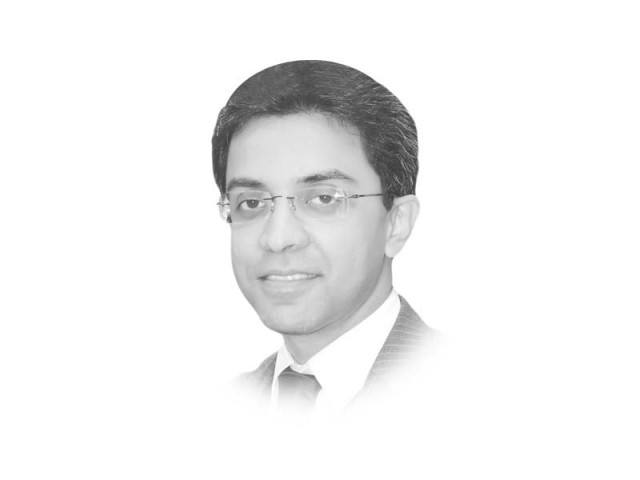Prospects and framework of civil service reforms
This government is in a good position to set the right agenda of irreversible civil service reforms

The writer is a lawyer and can be reached @LegalSubtleties
From the vantage point of nearly seven decades since the birth of our nascent republic, the successes and failures of the civil service can be evaluated through the situation existing in modern Pakistan. While the bureaucracy should not be viewed as the sole guilty entity that should take blame for all the follies we have committed, it by and large played an adverse role when it came to promoting democratic values and advancing the rule of law in the country. The civilian bureaucracy remained hand in glove with military and judicial establishments during periods of authoritarian rule and even during the brief spells of elected rule. However, at the same time, due to the inherent institutional flexibility of the civil service, it also conveniently adjusted to the civilian leadership and properly guided the often inept public representatives in beneficially mobilising the state machinery, envisaging and implementing public sector development plans, redressing grievances of ordinary people and exhibiting active response during crises.
Perhaps without being fully cognisant of it, the civil service is facing enormous challenges today. Any prospects and framework for reforms should proactively and accurately take account of present-day realities and future trends. It is evident that the burgeoning population, complex demographics, a proactive and aware citizenry, competing career choices, rise of the private sector, a watchful media, a robust civil society, global emphasis on expertise and specialisation, a relatively more independent judiciary and an entirely new era of information and communication technologies have placed this traditional institution under enormous pressure to either rapidly transform or else gradually diminish into redundancy, if not complete obliteration.
The attempts at reforming the civilian bureaucracy in Pakistan are not new. In fact, numerous past experiences have shown that civil servants have mastered the art of escaping real reforms by always embracing the idea of reforms i.e., taking all that is sweet and resisting all that is sour. Nevertheless, international development assistance programmes, political governments, NGOs and activist groups etc. will constantly find this an area of interest in the peculiar transitional and developmental settings of the Pakistani state.
One dimension of reforming the civil service is entrenched in the idea that a strong and largely unaccountable bureaucracy runs parallel to the decision-making ability of elected representatives. Yet another discourse is dismissive of the role of politicians in deciding the fate of appointments, transfers and postings of civil servants who are otherwise meant to be non-partisan and above political considerations. The recent scholarship on state building and the science of deliverology suggests that taking up a huge canvass of civil service reform as an independent normative exercise would make the drivers fall in a whirlpool and there will be no meaningful dividend. A more appropriate approach is to develop a concrete idea of dispensing a certain public good or initiating a major infrastructure project or any qualitative deliverable, the pursuit of which leads to some constructive reforms and capacity development as a by-product.
A civil servant, among other things, would generally be interested in guarding security of tenure of service; systematic career progression; financial independence in spheres of jurisdiction; disciplinary control over subordinates; due enjoyment of perks and privileges; accountability to a chain of command from within the service; recourse to exclusive service related judicial forums; and post-retirement social security. It is quite evident that the role of civil servants at all three layers of government i.e., federal, provincial and local, must be carefully restructured. Moreover, the tussle between Pakistan Administrative Services and Provincial Management Services need to be pragmatically re-looked.
The central premise of civil service reforms should not be about the process. Rather it should be about how the reform could be beneficial to the public who pay their tax money towards this enormous body. The reform should be about searching for ways public servants can become efficient regulators and proactively provide indispensible state services. The reforms should focus on rectifying the poor public image of government offices that are symbolised by corruption, nepotism and bully behaviour. The whole system cannot be radically transformed overnight and a Singapore style efficient civil service will not come into place suddenly. Nevertheless, the citizens at the bare minimum deserve to have a short red carpet treatment instead of the usual long, intertwined red tape treatment.
In this second successive cycle of democratic rule, this political government is in a good position to set the right agenda of irreversible civil service reforms that could eventually strike a balance between accountability and just powers that should stay in the hands of the babus.
Published in The Express Tribune, September 14th, 2015.
Like Opinion & Editorial on Facebook, follow @ETOpEd on Twitter to receive all updates on all our daily pieces.












1724319076-0/Untitled-design-(5)1724319076-0-208x130.webp)


COMMENTS
Comments are moderated and generally will be posted if they are on-topic and not abusive.
For more information, please see our Comments FAQ